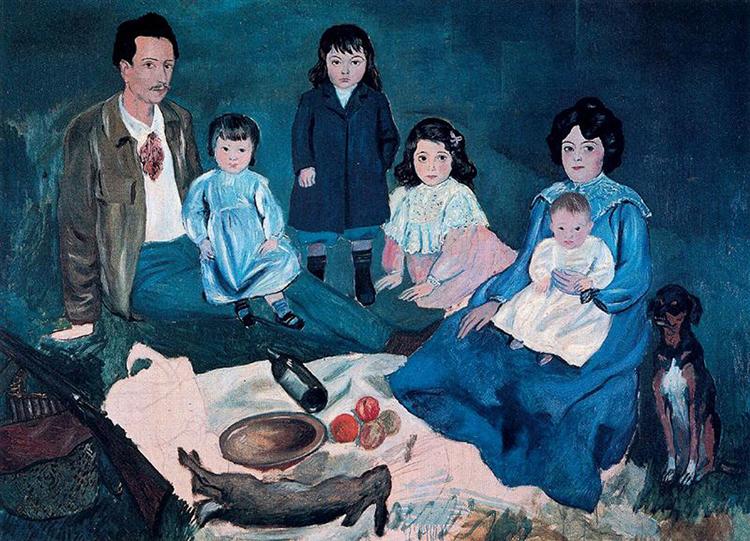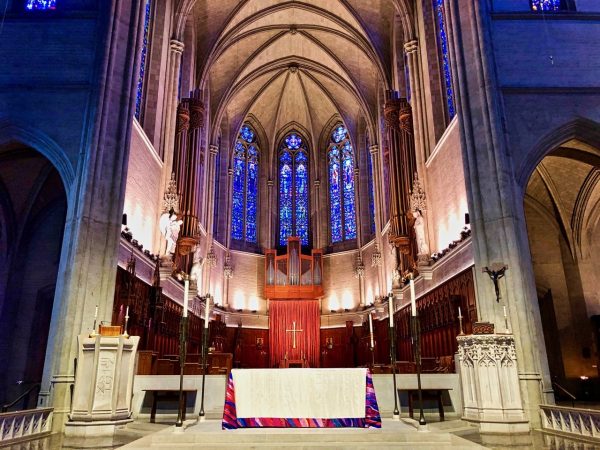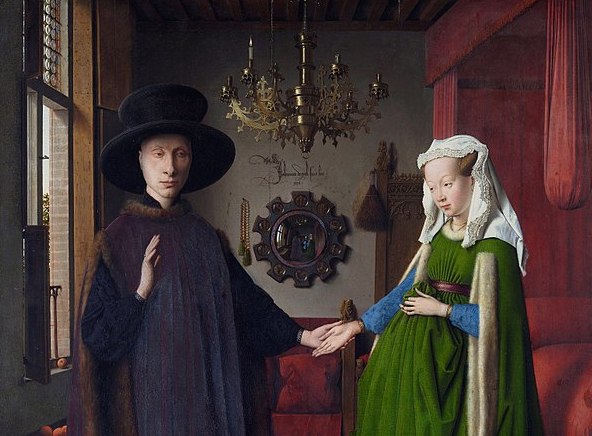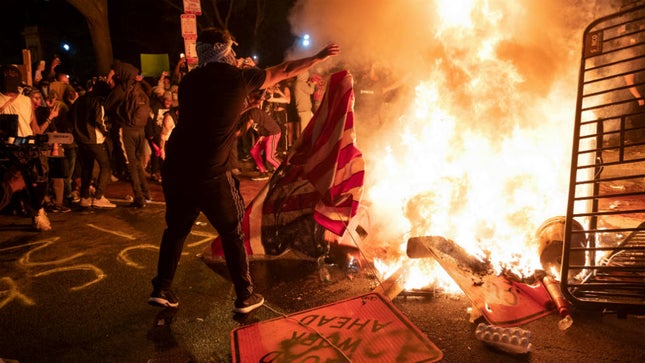Without stronger kin, the American way grows fatally weak.
Freedom Requires a Way of Life

Individual liberty can’t stand on its own.
Freedom is not enough, says Tom Klingenstein. He’s right.
Freedom is central to the American tradition: Don’t tread on me! Live free or die! But our freedom is nurtured, sustained, and protected by our way of life. If we don’t preserve that way of life in its fullness, we’ll lose our freedoms—even as we sing hymns to liberty and venerate the Bill of Rights.
More than 50 years ago, National Review editor Frank Meyer theorized “fusionism.” He sought to explain the postwar alliance of hardline anti-Communists, proponents of free enterprise, and social conservatives. By his reckoning, all three strands shared a commitment to individual freedom. In contrast, postwar liberals emphasized government-led solutions to social problems, which is to say “collectivism.”
Meyer’s approach spoke to the realities of his generation. But those realities have changed. 1968 inaugurated a left-leaning project of liberation, epitomized by sexual freedom from old social norms. Multiculturalism expands this project of liberation. Why should the West set the norms for society? Why presume a Judeo-Christian horizon for our society? Why tolerate “heteronormativity” and “cisgender” supremacy? Shouldn’t every individual have the freedom to determine and define his own truth?
At first glance, we are living in a time of what seems like unprecedented freedom. We’re free to have children out of wedlock without social censure or shame. We’re free to call upon doctors to end our lives. We’re free to divorce for any reason, or none. The liberation projects of the last generation have advanced so far as to claim that we’re free to decide if we are male or female.
Unlike my grandfather’s and father’s generations, we’re free from conscription. We’re free to get passports from other countries. We’re free (and often encouraged) to denigrate our country.
Yet upon closer examination, we’re remarkably constrained. Young people who enjoy the highest credentials are fearful that they’ll make a wrong professional step. They anguish over grades, internships, and job offers. When they’re not anxious, they’re cynical. They believe that DNA determines outcomes. Economic and material interests run the show. These outlooks allow no role for freedom.
We’re supposedly free to define truth for ourselves, but Twitter mobs punish dissent from today’s orthodoxies. I was heartbroken when a university student recently told me “the first thing you learn at college is never to say what you actually think.” Teched-up political correctness is a sleepless monitor, so much so that we even self-censor our innermost thoughts.
America in 2020 suffers from a crisis of freedom—not because there are too many formal limitations, but rather because our way of life is disintegrating. The most advantaged young people at the most prestigious universities clamor for safe spaces. Rich parents are so anxious about their progeny that they invest huge sums in private education, seeking every marginal advantage. Working-class Americans are dying “deaths of despair” in record numbers. Out-of-wedlock births are at record levels.
These are not signs of a confident, free citizenry. They indicate a people in bondage.
For the Ashes of our Fathers and the Temples of our God
The right of free speech is empty if we don’t have the courage to speak up. Our freedom of association means little if we’re too atomized and isolated to come together to pursue common causes. A way of life characterized by freedom must be capable of cultivating enduring commitments. We’re only as free as we want to be, and wanting to be free requires a substantive, strong desire to say, do, or stand for something.
Freedom requires a spirit of self-governance, courage, and pluck. These qualities arise from the depth and intensity of our loves and loyalties. They galvanize our souls, providing the aims and purposes that drive us to claim our rights—and give us the determination to defend the rights of others.
Klingenstein points us in the right direction. We need to preserve the American way of life, for strong social bonds give us a solid place to stand, a basis on which we can exercise our freedom. Our way of life has countless facets. But three stand out: family, civic life, and a spirit of transcendence.
The family is a school of loyalty. The decline of the family contributes to the diminution of freedom in American society. If people do not have stable families, they are alone and vulnerable. This makes them more likely to be slaves to their passions, as well as more easily intimidated and manipulated by others.
Alexis de Tocqueville feared that an excessive individualism would lead to a great mass of weak and vulnerable citizens eager to submit to the ministrations of a remote and all-powerful government. Sadly, we are well on our way toward that dystopia.
If we are to remain a free people, we need to renew the American family. This means economic policies that encourage our free-market system to create well-paying, middle class jobs. If the majority of Americans are economically self-sufficient, then they are more likely to restrain government overreach and hold our globalized billionaire class accountable to the common good of our nation.
Communal solidarity and national loyalty is another source of freedom. Klingenstein rightly targets the 1619 Project for criticism. It denigrates our national inheritance under the false pretense of giving birth to a more just nation. In truth, it strips the rising generation of dignified patriotic love, leaving them to shiver in the nakedness of a free-floating individuality.
The great sacrifices men and women have made in the defense and reform of our country are among the profoundest expressions of human freedom. These noble acts rise above bondage to self-interest. However nuanced and critical our historical pedagogy, we rightly teach our children to honor the spirit of sacrifice which animated our forebears. It is the surest guarantee of freedom.
Family and nation inspire loyalties that allow us to stand against those who would cow, coerce, and seduce. But more powerful still is the lure of transcendence. For many, transcendence is explicitly religious. For others it is moral, philosophical, or merely intuitive. But in each case, a deep sense that our lives are ordered toward a sacred purpose provides us with a profound sense of freedom.
Preserve the Realm
Our American tradition of religious freedom and non-establishment is wise. It has sustained a vibrant religious culture while forestalling political control of religion—and religious control of politics. But today’s secularism and materialism are cancers in our way of life. If we’re to sustain a free society, we need to encourage the religious life of the American people.
A ruler’s first duty is to preserve the realm. This does not mean reform is unimportant. Original sin imposes a social law of entropy, so preserving a way of life invariably requires the constant work of renewal. As G.K. Chesterton observed, if one wishes to keep a fence post white, one needs to repaint it on a regular basis. Or as Newman said, “to live is to change, and to be perfect is to have changed often.”
Those who care for the American way of life must change. If we’re to sustain our culture of freedom we need to renew its foundations—family, civic loyalty, and the spirit of transcendence.
The American Mind presents a range of perspectives. Views are writers’ own and do not necessarily represent those of The Claremont Institute.
The American Mind is a publication of the Claremont Institute, a non-profit 501(c)(3) organization, dedicated to restoring the principles of the American Founding to their rightful, preeminent authority in our national life. Interested in supporting our work? Gifts to the Claremont Institute are tax-deductible.
You can’t preserve something that no longer exists.
It’s time for conservatives to get real.
We must wrest our families back from our decadent overlords.
It’s a mistake to dismiss the ideological dimension of the culture war.
The politics of nostalgia can’t meet the moment.






